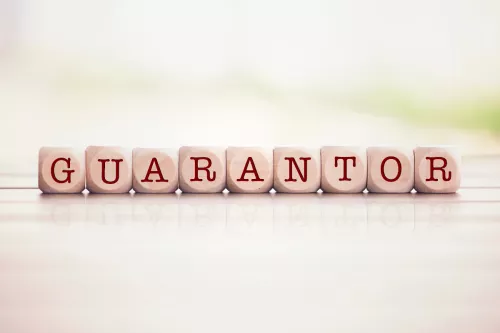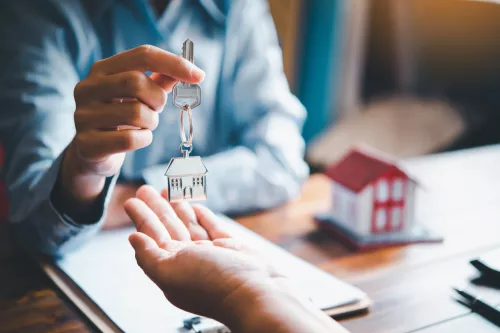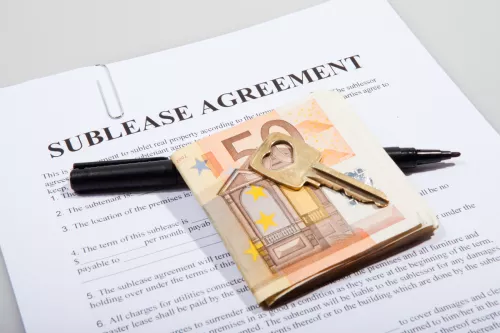Fixer-upper homes have become a staple of the real estate market, offering potential homeowners and investors a chance to purchase property at a lower price point with the intention of renovating it. These properties, often depicted in popular home renovation TV shows, come with their own set of challenges and rewards.
If you are curious about these homes, we’ve prepared this content for you. Here, we’ll explore the ins and outs of fixer-upper homes, from understanding what they are to evaluating their investment potential.
What Does "Fixer-Upper" Mean?
A fixer-upper home is a property that requires significant maintenance, repairs, or comprehensive renovations to be habitable or meet certain standards. While these homes might be livable, they demand a considerable commitment of time, effort, and financial resources towards structural or aesthetic improvements.
Choosing a fixer-upper can be beneficial for those looking to maximize their investment by acquiring a considerable good property for their money or for individuals interested in renovating the property to sell at a profit.
Why Are Fixer-Uppers So Affordable?
Fixer-upper homes are priced more affordably primarily because of their condition, which may include structural issues, outdated designs, or the need for extensive cosmetic updates. This can lead to lower demand and, consequently, a lower market price, making these properties particularly attractive to those willing to dedicate significant time and financial resources to repairs and renovations.
While such homes may be habitable, they require a considerable investment for improvements, either structural or aesthetic. Opting for a fixer-upper can be a strategic choice for individuals looking to maximize their investment by obtaining more property value or for those interested in refurbishing the home to achieve a profit upon resale.
How Does the Fixer-Upper Process Work?
Purchasing a fixer-upper involves several steps: identifying a potential property, conducting a thorough inspection to assess the extent of renovations needed, estimating the total cost of repairs, and finally, executing the renovation plan. Successful fixer-upper projects require careful planning, a realistic budget, and sometimes professional guidance. Let's take a thorough look in the process of buying such home once you’ve find it:
Conduct a Home Inspection
Spending a few hundred dollars on a professional home inspection is crucial when considering a fixer-upper. A thorough inspection will reveal the condition of the house, including any necessary repairs, helping you avoid unexpected issues such as faulty plumbing or structural damage. This step is vital for planning your budget and project priorities.
Calculate Renovation Expenses
Before committing to a fixer-upper, assess the costs involved in transforming it into your ideal home. List out all intended projects and estimate the costs for materials and labor, consulting contractors for more accurate quotes. This preliminary financial assessment will help you determine the feasibility of your renovation plans.
Check Permit Requirements
Certain home improvements may require permits, depending on your location. Common projects needing permits include structural changes, new windows, additional rooms, and updates to plumbing or electrical systems. Consult your local government office for guidance on obtaining the necessary permits and submitting any required plans.
Identify DIY Projects
To save money, identify which renovations you can handle yourself, excluding specialized tasks like electrical or plumbing work. Simple projects like painting or tiling can significantly reduce costs if done personally.
Look into Renovation Financing
Investigate loan options tailored for renovation projects. Loans like the FHA 203(k) can finance both the purchase and the renovation of a home, incorporating renovation costs into your mortgage.
Make a Considered Offer
Aim to secure a fair deal on the fixer-upper without overpaying, considering the cost of necessary renovations. Include inspection and appraisal contingencies in your offer to protect yourself against significant unforeseen issues or a valuation lower than your offer.
Negotiate the price, leveraging any property flaws, and be prepared to walk away if the terms are not favorable. Working with a real estate agent can help you navigate these negotiations effectively.
Building vs. Buying a Fixer-Upper
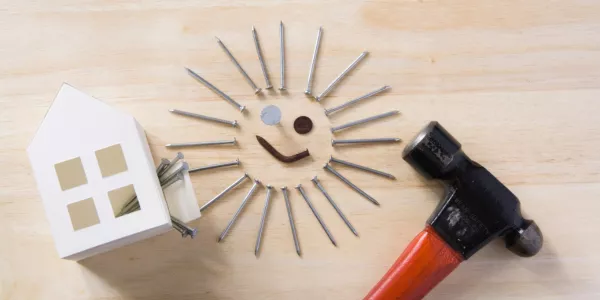
When deciding between constructing a new house or acquiring a fixer-upper, it's crucial to balance the financial and practical aspects. Opting for new construction allows for personal customization but often at a higher expense and with greater time commitments.
On the other hand, purchasing a fixer-upper could lead to immediate value increase after renovations, despite the risk of unforeseen expenses and budget overruns. Generally, buying an existing property is considered more economical, influenced by market conditions. Mortgages for homes are typically seen as less risky than land loans, offering benefits like smaller down payments and lower interest rates.
Investment Potential of Fixer-Upper Houses
Fixer-uppers hold the promise of substantial returns through "sweat equity," making them attractive investment opportunities. The success of such an investment hinges on securing the property at an appropriate price, precise calculation of renovation expenses, and a clear understanding of the property's market value post-renovation.
However, the potential for profit comes with the risk of incurring significant financial losses due to underestimating renovation costs, excessive dependence on contractors, and neglecting a thorough home inspection. To assess the viability of a fixer-upper investment, it's advisable to analyze similar properties in the vicinity, known as real estate comparables, to ensure the investment is sound.
Pros and Cons of Fixer-Upper Homes
It’s good to balance the pros and cons before deciding to buy a fixer-upper home. Otherwise, how you are going to know that this is what you are looking for. Here's a more detailed look at the pros and cons:
Pros
- Lower Purchase Price: Fixer-uppers often come with a price tag significantly lower than move-in-ready homes. This affordability can make homeownership more accessible, especially in competitive markets, allowing buyers to enter the housing market at a reduced cost.
- Customization: One of the most appealing aspects of a fixer-upper is the ability to customize the home according to personal taste and needs. Buyers have the freedom to design and renovate the space from scratch, turning an outdated house into their dream home with the exact layout, materials, and finishes they desire.
- Investment Potential: For those looking to invest in real estate, fixer-uppers offer the chance to significantly increase a property's value through renovations, often referred to as "flipping." If done wisely, the investment in renovations can lead to a substantial return when the home is sold, often exceeding the initial purchase and renovation costs.
Cons
- Unexpected Costs: One of the biggest risks of purchasing a fixer-upper is the potential for unexpected issues that arise during renovation, such as electrical problems, plumbing issues, or structural damages that were not apparent at the time of purchase. These unforeseen complications can lead to significant budget overruns.
- Time and Effort: Renovating a fixer-upper is not for the faint of heart. It requires a considerable amount of time, effort, and sometimes physical labor, particularly for those who choose to undertake some of the work themselves. The process can be stressful and disruptive, especially if living in the home during renovations.
- Financing Challenges: Financing a fixer-upper can be more complicated than securing a mortgage for a turnkey home. Due to the condition of the property, some lenders may be hesitant to provide a loan, or may require higher down payments and interest rates. Specialized renovation loans, such as the FHA 203(k) or the Fannie Mae HomeStyle loan, can be options, but they come with their own set of requirements and limitations.
Determining the Right Price for a Fixer-Upper
To calculate the appropriate purchase price for a fixer-upper, start by determining the property's After Repair Value (ARV), which is its expected market value after renovations. This involves estimating what the home would be worth in good condition and then subtracting the costs for necessary repairs.
For example, if three-bedroom, two-bathroom houses in your desired area typically sell for $400,000 and the fixer-upper you're interested in needs $150,000 in renovations, a purchase offer of $250,000 could be sensible.
This approach ensures you do not pay more than the property's value post-renovation. Having previously discussed how to assess the home's value if it were not in need of repairs, the next step is to delve into accurately calculating the costs associated with those renovations.
People also ask
Are fixer-uppers always a good deal?
Not necessarily. The value of a fixer-upper depends on the purchase price, renovation costs, and the potential market value after renovations.
Can I finance a fixer-upper?
Yes, but it may be more challenging. Some loan programs, like the FHA 203(k), are designed specifically for homes needing significant repairs.
How long do renovations typically take?
The timeline varies widely based on the scope of work, ranging from a few weeks to several months or more.
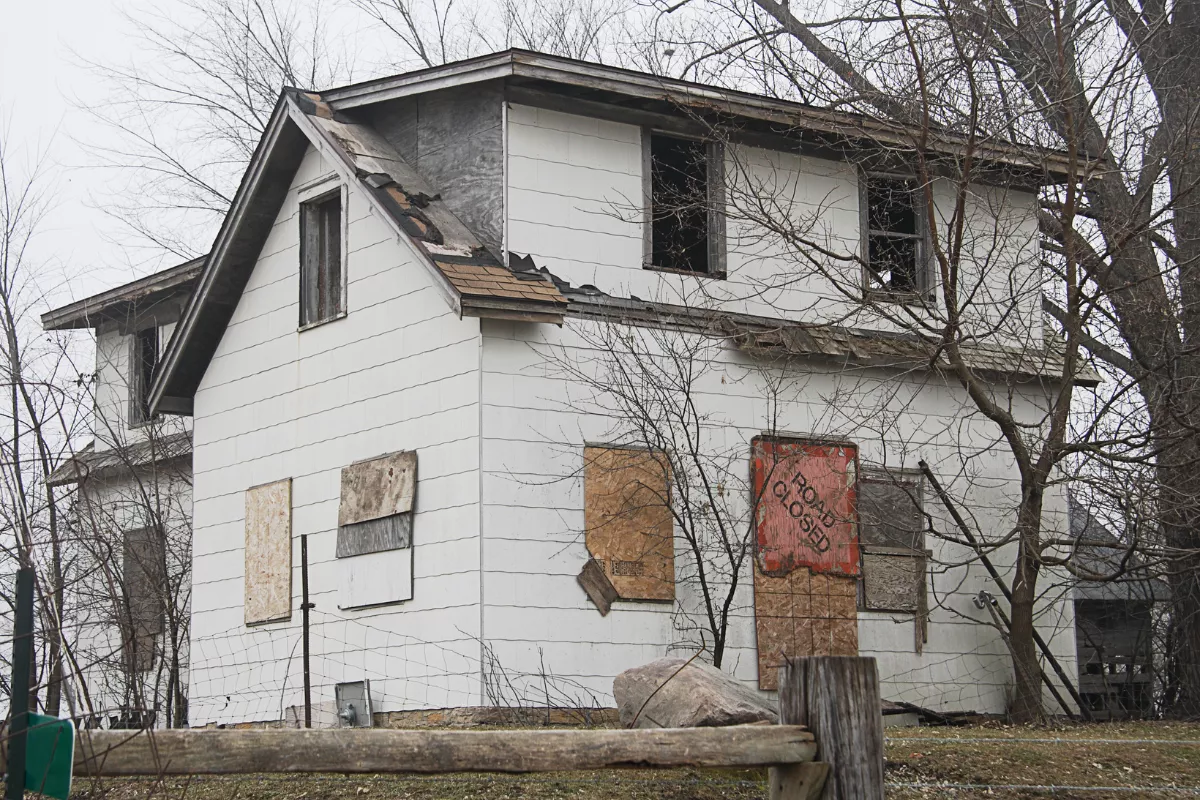
 Marcio Vasconcelos
Marcio Vasconcelos

